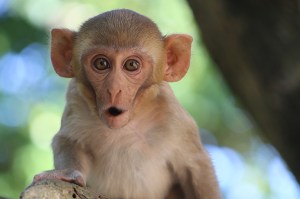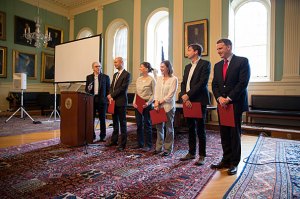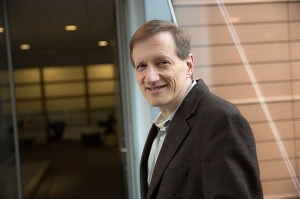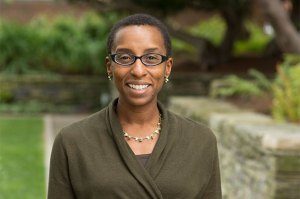Tag: Reuell
-
Health
Auditory cortex nearly identical in hearing and deaf people
The neural architecture in the auditory cortex — the part of the brain that processes sound — of profoundly deaf and hearing people is virtually identical, a new study has found. The study could point the way toward potential new avenues for treating deafness.
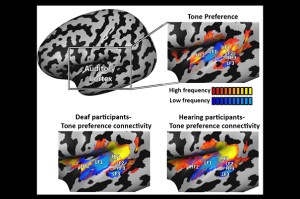
-
Health
The bionic cardiac patch
Harvard Professor Charles Lieber and other scientists conducted a study that describes the construction of nanoscale electronic scaffolds that can be seeded with cardiac cells to produce a bionic cardiac patch.
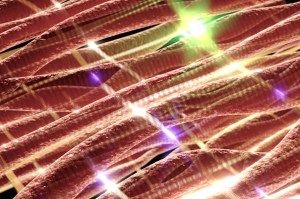
-
Science & Tech
More time free from disability
Harvard researchers are among the co-authors of a new study saying that the increase in life expectancy in the past two decades has been accompanied by an even greater increase in years free of disability, thanks in large measure to improvements in cardiovascular health and declines in vision problems.
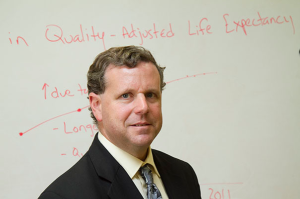
-
Health
New weapons against agricultural pests
Using phage-assisted continuous evolution (PACE) technology developed by Harvard professor David Liu and his co-workers, a team of researchers has evolved new forms of a natural insecticidal protein called “Bt toxin,” which can be used to help control Bt toxin resistance in insects.

-
Health
New view of germ cells
Cassandra Extavour is the author of a new study that points to a different mechanism as an ancestral process for specifying germ cells.
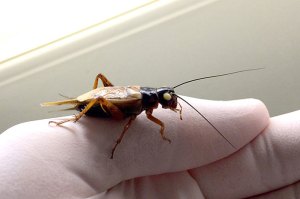
-
Health
For life expectancy, money matters
A new study published in the Journal of the American Medical Association shows that income is closely correlated with life expectancy, with the richest Americans living as much as 15 years longer than the poorest — and even the poor living longer in wealthy areas.

-
Science & Tech
Study that undercut psych research got it wrong
A study last year claiming that more than half of all psychology studies cannot be replicated turns out to be wrong. Harvard researchers have discovered that the study contains several statistical and methodological mistakes, and that when these are corrected, the study actually shows that the replication rate in psychology is quite high.

-
Science & Tech
The shifts from climate change
Grasslands across North America will face higher summer temperatures and widespread drought by the end of the century, a study says, but those negative effects should be offset by an earlier start to the spring growing season and warmer winter.

-
Campus & Community
Kleckner receives Thomas Hunt Morgan Medal
Nancy Kleckner, the Herchel Smith Professor of Molecular Biology, has been awarded the Thomas Hunt Morgan Medal by the Genetics Society of America in recognition of her many significant contributions to our understanding of chromosomes and the mechanisms of inheritance.

-
Health
Watching sensory information translate into behavior
A state-of-the-art microscope built by Harvard researchers will allow scientists to capture 3-D images of all the neural activity in the brains of tiny, transparent C. elegans worms as they crawl.
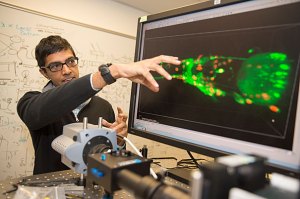
-
Science & Tech
Today’s farming practices can cool temps
In a surprising finding that runs counter to most climate change research, Harvard scientists examining temperature records have shown that, in regions with the most intense farming, peak summer temperatures have declined over the decades.

-
Campus & Community
Harvard biologist is first woman to lead HHMI
Erin O’Shea, the Paul C. Mangelsdorf Professor of Molecular and Cellular Biology and of Chemistry and Chemical Biology, has been named the sixth president of the Howard Hughes Medical Institute.
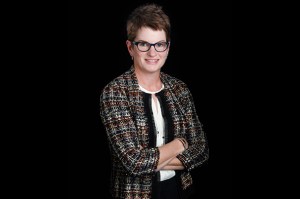
-
Science & Tech
Study of African trees goes public
A postdoctoral fellow has launched a citizen-science project that aims to digitize thousands of pages of detailed observations on the life cycles of African trees.
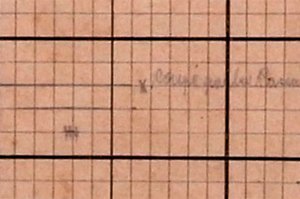
-
Health
A brain link to autism
Using a visual test that is known to prompt different reactions in autistic and normal brains, Harvard researchers have shown that those differences were associated with a breakdown in the signaling pathway used by one of the brain’s chief inhibitory neurotransmitters.
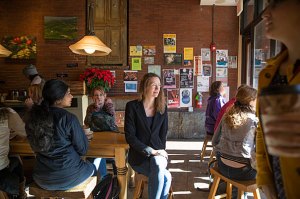
-
Science & Tech
A focus on fairness
Using a simple game in which candy is distributed between two players, researchers found that children in various countries were quick to reject unfair deals, but in three countries they were also willing to reject deals unfair to others.
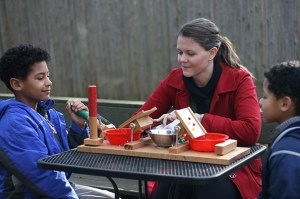
-
Science & Tech
Pinpointing punishment
It’s a question most attorneys wish they could answer: How and why do judges and juries arrive at their decisions? The answer, according to Joshua Buckholtz, may lie in the…
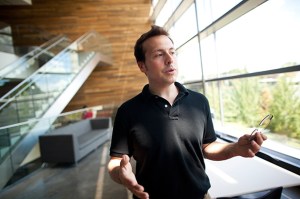
-
Science & Tech
How the brain builds new thoughts
A new study suggests that two adjacent brain regions allow humans to use a sort of conceptual algebra to construct thoughts.
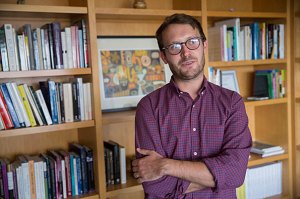
-
Science & Tech
Tiny wires, great potential
Harvard scientists have developed a method for creating a class of nanowires that could one day see applications in everything from consumer electronics to solar panels.
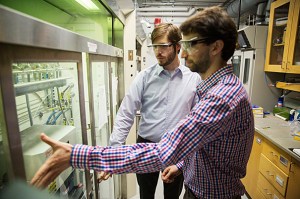
-
Health
Sequencing Ebola’s secrets
A global team from Harvard University, the Broad Institute, the U.S. Centers for Disease Control, and other institutions sequenced more than 200 additional Ebola samples to capture the fullest picture yet of how the virus is transmitted and changes over a long-term outbreak.
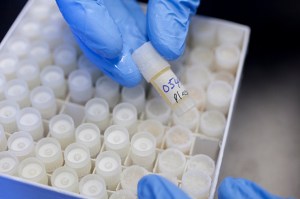
-
Science & Tech
Injectable device delivers nano-view of the brain
An international team of researchers has developed a method of fabricating nanoscale electronic scaffolds that can be injected via syringe. The scaffolds can then be connected to devices and used to monitor neural activity, stimulate tissues, or even promote regeneration of neurons.
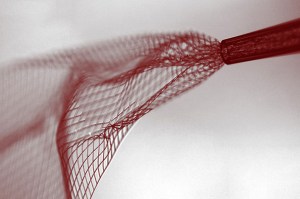
-
Science & Tech
Cooking up cognition
A new study suggests that many of the cognitive capacities that humans use for cooking — a preference for cooked food, the ability to understand the transformation of raw food into cooked, and even the ability to save and transport food to cook it — are shared with chimpanzees.

-
Health
Improved accuracy in genome editing
A team of scientists has engineered a form of the genome-editing protein Cas9 that can be controlled by a small molecule and offers improved DNA specificity.

-
Campus & Community
Fryer wins Clark Medal
Roland Fryer, Harvard’s Henry Lee Professor of Economics, has been awarded the American Economic Association’s John Bates Clark Medal, which is given annually to a rising young economist.
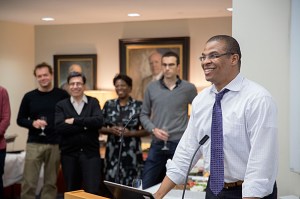
-
Health
Why birds don’t crash
A new study shows that birds use two highly stereotyped postures to avoid obstacles in flight. The study could open the door to new ways to program drones and other unmanned aerial vehicles to avoid similar obstacles.
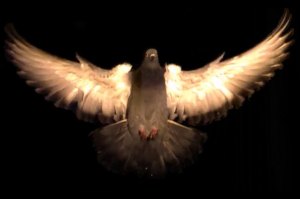
-
Science & Tech
A leap for ‘artificial leaf’
Using an electro-chemical process to etch materials, Harvard scientists have developed a system of patterning that works in just minutes, as opposed to the weeks needed for other techniques. Researchers can build photonic structures that control the light hitting the device and greatly increase its efficiency.
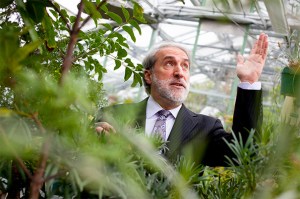
-
Science & Tech
When flames attack
Harvard researchers were able to predict when test flames in the lab were likely to switch from slow- to fast-moving fires, which could open the way to making similar predictions for forest fires.




